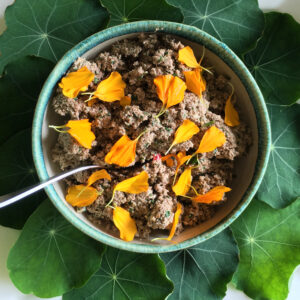Chronic inflammation plays a central role in many challenging diseases
Do you know that low grade chronic inflammation caused by an insufficiency (magnesium for example), has been linked to an increased risk of inflammatory-related diseases like heart disease and Alzheimer’s?
Some of the diseases that have been tied to chronic inflammation by experts: Alzheimer, Parkinson, auto-immune diseases, cancers, cardio-vascular diseases.
Some foods raise the risk of chronic inflammation, other foods keep inflammation at bay
Eat more fruits, vegetables and plant-based foods. These include berries, leafy greens, beets and avocados. Other good choices are legumes, ginger, turmeric and green tea (read below). These foods have high levels of antioxidants, which help prevent, delay or repair some types of cell and tissue damage, as well as anti-inflammatory flavonoids reducing inflammation.
Celery and celery juice include both antioxidant and anti-inflammatory abilities that help improve blood pressure and cholesterol levels, as well as prevent heart disease.
Sulforaphane found naturally in food sources like broccoli or brussel sprouts is an antioxidant powerhouse, with key vitamins, flavonoids and carotenoids, and thus a perfect anti-inflammatory food.
Blueberries One antioxidant in particular stands out as an especially strong anti-inflammatory: quercetin. Found in citrus, olive oil and dark-colored berries, quercetin is a flavonoid (a beneficial substance or phytonutrient that’s prevalent in fresh foods) that fights inflammation and even cancer.
Consume fermented foods with live microbes A recent study found that consuming fermented food decreased inflammatory markers. Fermented foods, includes yogurt, kefir, fermented cottage cheese, kombucha, kimchi…
Blood tests taken after the 10-week period showed that levels of 19 inflammatory proteins decreased. One of these proteins, interleukin 6 (IL-6), is linked to conditions like rheumatoid arthritis, type 2 diabetes and stress.
Turmeric/Curcumin has been largely studied for helping decrease pain and inflammation in people with arthritis symptoms. Due to its high anti-inflammatory properties, turmeric is highly effective at helping people manage rheumatoid arthritis
Ginger Used as an anti-inflammatory and to boost the immune system in traditional medicine like Ayurveda for centuries. Research has shown that ginger can have some health benefits, including for digestion, heart health, and menstrual pain and cleanse the lymphatic system,
Bromelain Pineapple is used widely as a natural remedy to treat everything from indigestion to allergies, pineapple is not only brimming with this bromelain, but also vitamin C, vitamin B1, potassium, manganese and phytonutrients. Bromelain has traditionally been used as a potent anti-inflammatory and anti-swelling agent, and may help prevent blood clots.
Bromelain has been used to treat: Connective tissue injuries, Sprained ankles, Tendonitis, Allergies, Arthritis, joint pain and osteoarthritis, Digestive issues like heartburn or diarrhea, Cardiovascular disorders, Asthma, Autoimmune diseases, Cancer, Inflammatory bowel disease, Sinus infections, such as bronchitis and sinusitis, Surgical trauma and slow healing of skin wounds or burns
Green Tea Green tea has powerful antioxidant properties, which could help reduce inflammation in the body. s beneficial for metabolic and cardiovascular health. Flavan-3-ols, the type of flavonoids found in green tea and other teas, provide many of the anti-aging effects of green tea. Catechins in various types of teas are the polyphenols that seem to have the most potent antioxidant effects, according to Natural Standard.
.A well-known compound found in green tea is called EGCG (which stands for epigallocatechin-3-gallate). EGCG is associated with enhanced metabolic activities that may prevent weight gain or assist with weight maintenance.
Walnuts Bring proteins and omega-3s. Add walnuts to green leafy  salads drizzled with olive oil for a satisfying anti-inflammatory meal. Check my Walnuts Minced Recipe. Phytonutrients can help protect against metabolic syndrome, cardiovascular problems and type 2 diabetes, and some phytonutrients in walnuts are hard to find in any other foods.
salads drizzled with olive oil for a satisfying anti-inflammatory meal. Check my Walnuts Minced Recipe. Phytonutrients can help protect against metabolic syndrome, cardiovascular problems and type 2 diabetes, and some phytonutrients in walnuts are hard to find in any other foods.
Chia seeds Offer both omega-3 and omega-6, which should be consumed in balance with one another. Chia seeds are an antioxidant, anti-inflammatory powerhouse, containing: essential fatty acids alpha-linolenic and linoleic acid, mucin, strontium, vitamins A, B, E, and D, minerals, including sulphur, iron, iodine, magnesium, manganese, niacin and thiamine
Chia seeds’ ability to reverse inflammation, regulate cholesterol and lower blood pressure make it extremely beneficial to consume for heart health. Also, by reversing oxidative stress, someone is less likely to develop atherosclerosis if regularly consuming chia seeds.
FlaxseedsAn excellent source of omega-3s and phytonutrients, flaxseeds benefits include being packed with antioxidants, including lignans and polyphenols. Lignans are unique fibre-related polyphenols that provide us with antioxidant benefits for anti-aging, hormone balance and cellular health. Polyphenols support the growth of probiotics in the gut and may also help eliminate yeast and candida in the body.. Consider grinding them in a coffee grinder to ensure the digestive tract has easy access to their many benefits.
Fish Oil Omega-3 fatty acids are found naturally in high amounts in oily fish like salmon (wild caught) or sardines. Different studies found that adults who take an omega-3 fatty acid supplement, including fish oil, improved markers of inflammation in various health conditions such as cancer, kidney diseases and diabetes. Additionally, omega-3 supplementation has shown promise when it comes to brain health, particularly when it comes to memory, cognition, and blood flow to the brain.
Reduce Chronic Inflammation Naturally sources: Mayo clinic
https://www.forbes.com/health/supplements/anti-inflammatory-supplements/
